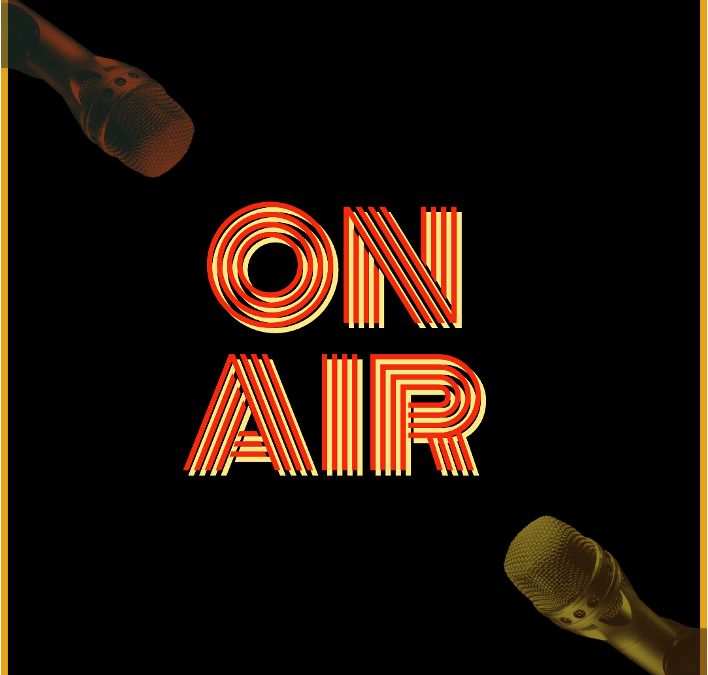Imagine spending several months engaging in extensive rehearsal, perfecting your craft, and memorizing lyrics to perform a new song given to you by a songwriter. The song is eventually played on all major radio platforms, becomes a number one hit, and you and the songwriter are commended for a masterpiece! As a result, the songwriter receives a hefty check from the radio stations that broadcast the song through a Performance Rights Organization, but you only receive a shout-out over the radio.
This narrative is quite familiar to musical performers using independent songwriters because there is no public performance right for over-the-air radio broadcasts.[1] The decades-long fight for performers to receive royalties for songs broadcasted on FM/AM stations may end in victory. In June 2021, Representatives Darrell Issa (R-CA) and Theodore Deutch (D-FL) introduced the American Music Fairness Act (“AMFA”).[2] If the AMFA is passed, radio broadcasters would be required to pay performers royalties for the songs that are broadcasted on their stations.[3]
“For far too long, our broken system has let FM/AM radio stations get away with refusing to pay artists when they play their music,” said Representative Deutch while introducing the AMFA at a press event at the U.S. Capitol.[4] “It’s time to right this wrong, because paying people for their hard work is the fair thing to do.”[5] The bill has been referred to the House Committee on the Judiciary.[6]
Unfortunately, several similar measures have been stalled in Committees.[7] In November 2019, Senator Marsha Blackburn (R-TN) and Representative Jerrold Nadler (D-NY) introduced the Ask Musicians for Music Act (“AM-FM”).[8] The AM-FM Act is designed to “allow artists to negotiate performance royalty rates with radio stations in exchange for permission to play their music.” [9] The AM-FM Act has been in the House Committee on the Judiciary for almost two years.[10]
If the AMFA survives the Congressional process, it will amend the Copyright Act in several ways.[11] First, it will require terrestrial radio stations to compensate all artists for their intellectual property.[12] Second, it will create a fair market value for music performance royalties by requiring AM/FM radio stations to compensate artists.[13] Third, it will allow small and local stations to play unlimited music for a nominal annual fee.[14] Finally, it will ensure that foreign countries also compensate U.S. artists when their songs are played overseas.[15]
The AMFA has received bi-partisan support among members of the House of Representatives and is supported by music celebrities such as Dionne Warwick and Sam Moore.[16] The Act was also endorsed by numerous music organizations, including the American Federation of Musicians and VNUE, a music technology company.[17]
Broadcasters who oppose an amended performance rights bill argue that it is unnecessary and overly burdensome.[18] Critics also say that a performance rights bill will have an adverse impact on small and local radio stations. [19] The AMFA addresses this problem with a carved-out exemption that permits small and local stations to play unlimited music for less than $2 a day.[20]
If members of Congress oppose passing a performance rights bill because broadcasters argue that performers receive “free promotion” on the radio [21], they should consider the double standard in having songwriters receive “free promotion” with royalty payments. Performers make a substantial contribution to the success of a song and should be compensated when their songs are played on the radio as their songwriter counterparts.
In Twentieth Century Music Corp. v. Aiken, the Supreme Court noted, “The immediate effect of our copyright law is to secure a fair return for an ‘author’s’ creative labor. But the ultimate aim is, by this incentive, to stimulate [the creation of artistic works] for the general public good.”[22]
If Congress wants to secure a fair return for performers for their role in making a song successful, they should act quickly to pass a performance rights bill like the AM-FM Act or the AMFA.
[1] Brian T. Yeh, Cong. Rsch. Serv., RL33631, Copyright Licensing in Music Distribution, Reproduction, and Public Performance 22 (2015), https://sgp.fas.org/crs/misc/RL33631.pdf.
[2] Chris Eggertsen, Congressional Bill Renews Effort to Get Artists, Labels Paid for Radio Airplay, Billboard (June 24, 2021), https://www.billboard.com/articles/business/radio/9592469/american-music-fairness-act-performance-royalties/.
[3] Id.; H.R. 4130 – American Music Fairness Act, 117th Cong. § 4, https://www.congress.gov/bill/117th-congress/house-bill/4130/text.
[4] Press Release, Darrell Issa, U.S. Representative, Reps. Issa, Deutch Introduce Bill to Ensure Artists Receive Fair Pay for Fm/AM Radio Airplay (June 24, 2021), https://issa.house.gov/media/press-releases/reps-issa-deutch-introduce-bill-ensure-artists-receive-fair-pay-fmam-radio.
[5] Id.
[6] H.R. 4130, 117th Cong., https://www.congress.gov/bill/117th-congress/house-bill/4130.
[7] See Eggertsen, supra note 2.
[8] Id.
[9] H.R. 5219 – Ask Musicians For Music Act of 2019, 116th Cong., https://www.congress.gov/bill/116th-congress/house-bill/5219.
[10] Id.
[11] See Press Release, Darrell Issa, supra note 4.
[12] Id.
[13] Id.
[14] Id.
[15] Id.
[16] Id.; H.R. 4130, 117th Cong. Cosponsors, https://www.congress.gov/bill/117th-congress/house-bill/4130/cosponsors.
[17] VNUE, Inc., VNUE Endorses The American Music Fairness Act, PR Newswire (June 29, 2021, 3:16 PM), https://www.prnewswire.com/news-releases/vnue-endorses-the-american-music-fairness-act-301322441.html.
[18] GovTrack, S. 379 (111th): Performance Rights Act, https://www.govtrack.us/congress/bills/111/s379/summary, (Refrencing broadcasters opposition to the Performance Rights Act of 2009 which would have expanded performance rights to cover terrestrial broadcasts such as AM/FM radio).
[19] National Association of Broadcasters, A Performance Tax Threatens Local Jobs, https://www.nab.org/advocacy/issue.asp?id=1889&issueid=1002; See Eggertsen, supra note 2, https://www.billboard.com/articles/business/radio/9592469/american-music-fairness-actperformance-royalties/.
[20] See Press Release, Darrell Issa, supra note 4.
[21] National Alliance of State Broadcasters Associations, Issues and Advocacy, https://nasbaonline.net/issues/.
[22] Twentieth Century Music Corp. v. Aiken, 422 U.S. 151, 156 (1975).

